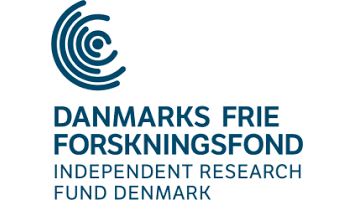Independent Research Fund Denmark (IRFD)

Independent Research Fund Denmark funds specific research activities based on researchers' own initiatives. Moreover, the Fund provides advice in all scientific areas for the Danish Minister for Higher Education and Science, the Danish Parliament and the Government.
The primary aim of Independent Research Fund Denmark is to support and promote the most original ideas and initiatives within Danish research.
On annual basis, the Independent Research Fund Denmark awards 400 grants to research projects. In total, the grants amount to well over DKK 1 billion. In order to ensure that the grants are given to the absolutely best research projects, the grants will be allocated via open calls without thematic limitations. The Independent Research Fund Denmark supports specific time-limited research activities and scientific quality is the most important assessment criteria when distributing the funds.
The fund constantly works to ensure the best conditions for free curiosity-driven research in Denmark. Among other things this is done through the research advisory services which the Fund provides to the Minister for Higher Education and Science, the Danish Parliament and the Danish Government.
On a regular basis, the fund is furthermore in dialogue with significant stakeholders with a view to ensuring that Danish research creates the best possible research results in benefit to the Danish society.
Furthermore, the Independent Research Fund Denmark strengthens the dissemination and application of research findings as well as participates in international research collaboration.
Independent Research Fund Denmark is comprised of a Board of Directors and five scientific research councils.
- DFF | Humanities offers funding to researchers who work within the following disciplines: art history, architecture and design, media studies, film studies, musicology, ICT in the Humanities, comparative literature, dramaturgy, philology, linguistics, communication research, anthropology, ethnology, archaeology, history, philosophy, history of ideas and science, theology, comparative religion, educational theory, pedagogy, psychology and other related research disciplines within the humanities, such as library research, museology, as well as humanistic research within sports science, public health, urban and physical planning.
- DFF | Natural Sciences offers funding to researchers who investigate fundamental scientific issues within the natural sciences, computer science and mathematics, with an epistemological but not necessarily an applied scientific objective. The Council covers research within the classical disciplines: Astronomy, physics, chemistry, mathematics, computer science, molecular biology, biochemistry/biophysics, biology, geology as well as the natural science aspects of geography.
- DFF | Social Sciences offers funding to researchers who work within the social sciences. DFF | Social Sciences covers the following main disciplines: economics, sociology, political science and legal theory, as well as the societal aspects of various interdisciplinary subjects (e.g. communication studies, development studies, gender studies and cultural geography).
- DFF | Medical Sciences offers funding to researchers who work with all aspects of basic, translational, clinical and socio-medical research in relation to human health and disease.
- DFF | Technology and Production Sciences funds researchers carrying out basic research within technology and production sciences which is: a) motivated by a specific problem or having a clear application-oriented perspective; and b) aimed at solving a specific problem, developing new technologies and production systems or new ways of meeting the needs of society. Please note that neither epistemological research without any application-oriented perspectives nor development activities will be supported.
- DFF | Cross-council committee comprises representatives from all five research councils and coordinates the handling procedure for applications that fall within the boundaries between the councils. The cross-council committee also funds applications that are considered to be truly cross-council (see Section 5.5), as well as applications to Sapere Aude: DFF-Starting Grant and Non-universities researcher education (PhD).